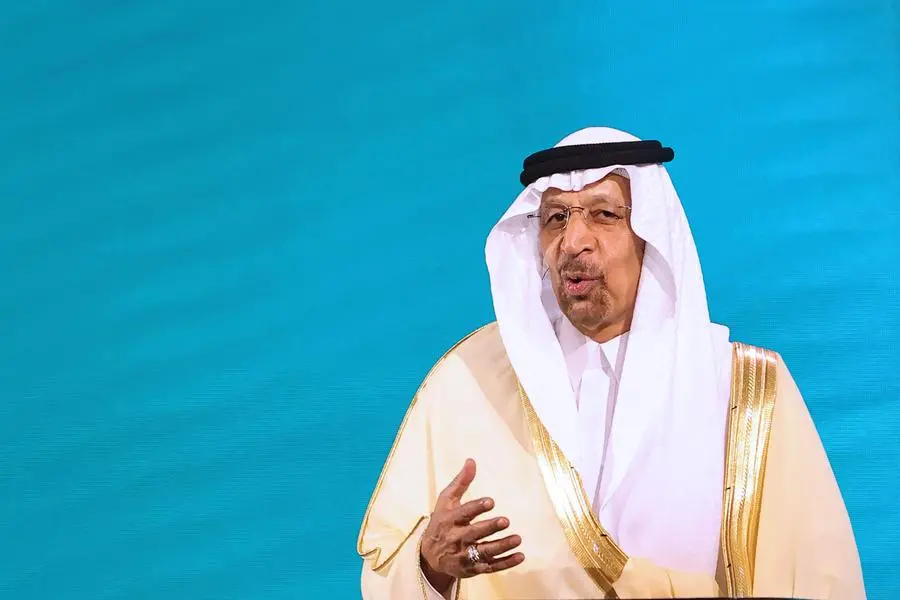PHOTO
Jeddah: Minister of Investment, Eng. Khalid bin Abdulaziz Al-Falih, said that hosting the Summit of the Gulf Cooperation Council (GCC) and Central Asian countries in the Kingdom of Saudi Arabia confirms its leading position at the regional, continental, and global levels under the leadership of the Custodian of the Two Holy Mosques King Salman bin Abdulaziz Al Saud, and HRH the Crown Prince.
Eng. Al-Falih expressed optimism about the expected outcomes of the Summit, particularly with regard to the development and expansion of economic and investment relations between the participating countries, whether bilaterally or regionally.
He emphasized that there are several reasons for his optimism and that these reasons enhance opportunities for cooperation between these countries in developing their bilateral investment relations.
The Minister added that the GCC of Member States have strategic development plans, including Saudi Vision 2030, Oman Vision 2040, Bahrain Economic Vision 2030, and others.
Concerning the other side, Eng. Al-Falih said the Central Asian countries have adopted similar development visions, such as Kyrgyzstan’s National Development Strategy 2018-2040, the Kazakhstan 2050 Strategy, and others.
He indicated that these visions and strategies, while differing in their details, have similar or even identical main goals, especially in the economic and investment fields.
Eng. Al-Falih pointed out that the journey of investment cooperation between the Kingdom and Central Asian countries has already begun, but the expectations and ambitions are greater, adding that the work towards achieving them is ongoing and serious.
He emphasized that there is a tangible presence of various investments by Saudi Arabia in some Central Asian countries. In this regard, the Minister pointed out that Saudi energy company "ACWA Power" has the most prominent presence in Central Asia through its renewable energy projects, such as utilizing solar and wind energy and building energy storage batteries, in the Republics of Uzbekistan, Azerbaijan, and Kazakhstan.
He also highlighted the agreements and memorandums of understanding (MoUs) signed by Dr. Sulaiman Al-Habib Medical Group (HMG) for investment in the healthcare sector in Uzbekistan, as well as investments by Fawaz Alhokair Group in the tourism sector in the Republic of Kazakhstan.
Moreover, Eng. Al-Falih referred to the efforts by flynas to launch air routes between Saudi Arabia and some Central Asian republics, as well as investment plans by Al-Rajhi International Group in the agricultural sector in Uzbekistan.
Al-Falih indicated that a wide-scope of investment relations can be revealed in the light of the of the recognition of these governments to the Kingdom particularly and to the Arab Gulf countries generally.
Investment minister also affirmed that these countries foresee boosting investment cooperation with the Kingdom and the GCC states, a matter which was notably seen during bilateral meetings and the exchanged official visits.
Al-Falih also said that the factors he referred to all together confirm the wide and extended opportunities for investment in the Central Asian countries, including vital sectors such as tourism and travel, oil and gas, including pipelines, renewable and hydroelectric energy, agriculture, food, livestock, tourism, travel, transportation, logistics, petrochemical industry, mining and metallurgical industries, health services, financial activities, and others.
The Minister of Investment also expressed that the Kingdom of Saudi Arabia seeks increasing the volume of investments of the Central Asian countries in the Kingdom and diversifying them.
He also indicated that the Ministry of Investment is working, in cooperation with the public and private sectors, to create opportunities for the Central Asian investors, while providing an attractive, stimulating and safe investment environment, based on the special advantages of the Kingdom, such as a strategic geographical location linking three continents, overlooking the most important water crossings, possession of energy resources and young human competencies, being the largest economy in the Middle East and one of the twenty largest economies in the world, presenting the strongest market in the region.
Al-Falih said that all the advantages can create successful investment cooperation between the Kingdom of Saudi Arabia and these countries.





















